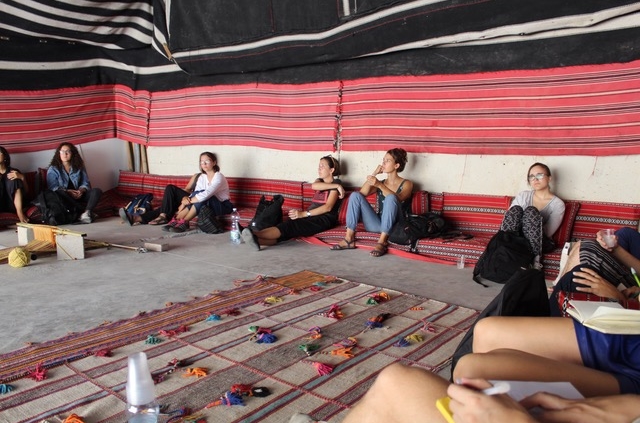Can entrepreneurship be a means of empowerment for Bedouin women? — Fieldtrip Negev/Naqab – July 13, 2019
This June, the Willy Brandt Center organised a fieldtrip to the Negev/Naqab aimed at learning more about the challenges that Bedouin women face in their lives and in the labour market. The fieldtrip allowed us to meet these women first hand and to see what can’t be seen from Jerusalem, from afar.
First we met Ilham from Sidreh in the Bedouin village Lakiya, who introduced us to the businesses Bedouin women work in, such as embroidery and other handcrafts. Embroidery is one of the traditions that all Bedouin women learn, usually for the purpose of decorating dresses. Nowadays, these embroidery patterns are also used for bags and pillows, thus connecting this traditional art to new products intended for customers all around the world.
We met Dr. Sarab Abu Rabia-Queder (Senior Lecturer at Ben-Gurion University) at Ajeek, which is an Arab-Jewish Center for Empowerment and Cooperation in the Negev, aimed at promoting socio-economic development. Sarab presented her paper titled “The Economy of Survival: Bedouin Women in Unrecognized Villages“ (2017), and talked about how Bedouin women rarely have the resources for agriculture, they have lost their productive roles within their families, and are not able to find jobs or work in the public workforce. Sarab further discussed the ways in which the lives of Bedouin women have changed following the Nakba and due to the current living conditions – especially in unrecognised villages, where land confiscations and the deprivation of housing rights and proper infrastructure are prevalent.






